We have covered this one as an example, which involves automatically changing unconscious instincts or impulses that are consciously thought to be in violation of or unacceptable to our higher brained, moral codes (Freud’s Superego) into their opposites.
This unconscious social habit is interesting as a tool for “reading” and decoding others. It has been said that “the unconscious only thinks in positives, not negatives.” This is one of the popular methods of detecting a lie in others - that when one negates something in conversation, the idea first had to exist as a positive, and so what the person was really thinking at the unconscious level was the positive version.
For example, if someone says to you, “It’s not that your looks are not my type. It’s just that I’m spoken for right now,” then what the person’s unconscious is thinking is that it is your looks that they don’t prefer. It’s just too uncomfortable to make that known.
Another one is when someone says to you, “It’s not that I was out meeting other people. I was just busy with work,” then there was at least the instinctual desire on their part to meet other people behind your back. That is what was in the unconscious before they negated it out of their discomfort with the moral dilemma of either telling you, or doing it. Of course, this is not to say that they were meeting other people or cheating on you. It’s just that the desire, instinct, or urge to was there. Hopefully they negated the impulse by using their higher, conscious moral sense.
And so reaction formation is saying, feeling, or overtly believing the opposite of what one really wants or feels in the instincts. We take the opposite belief because the true belief causes anxiety.


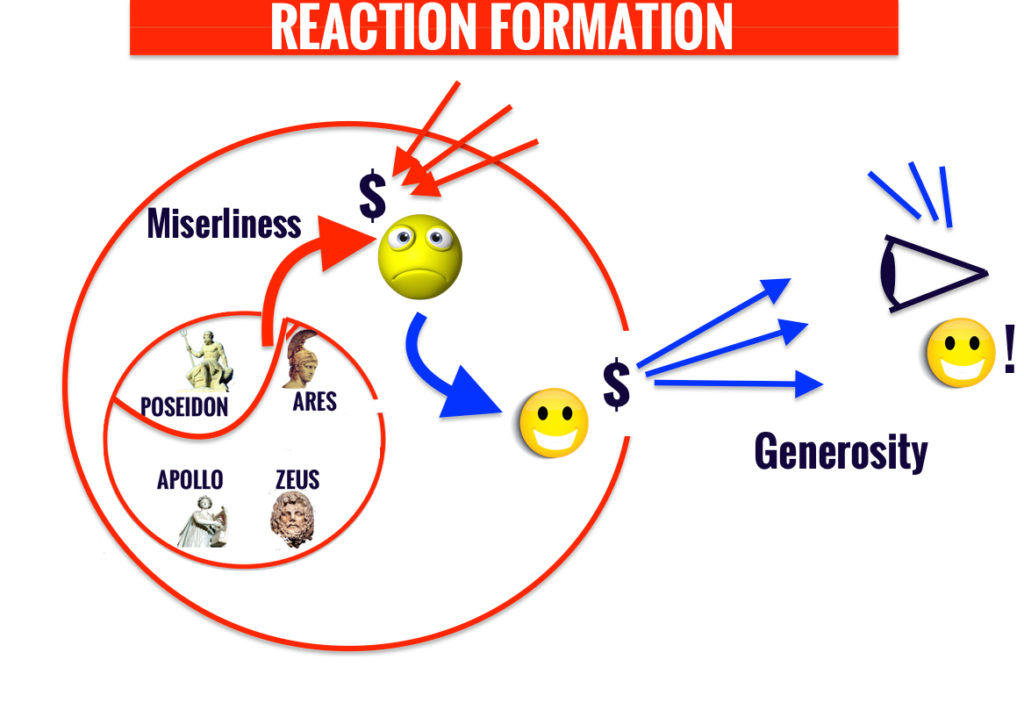

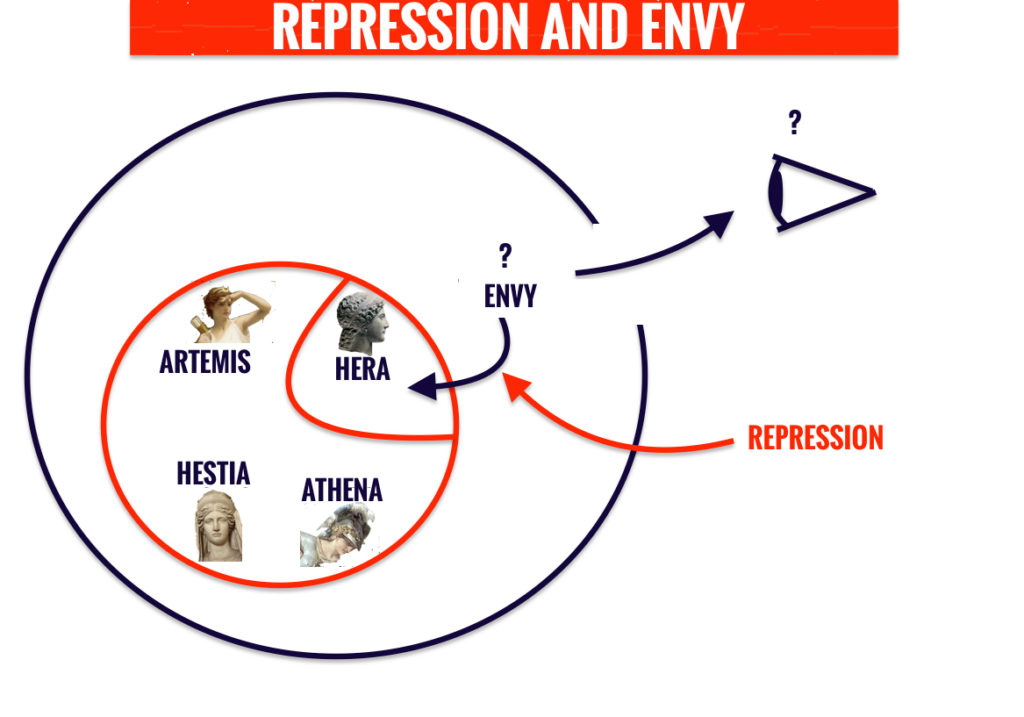
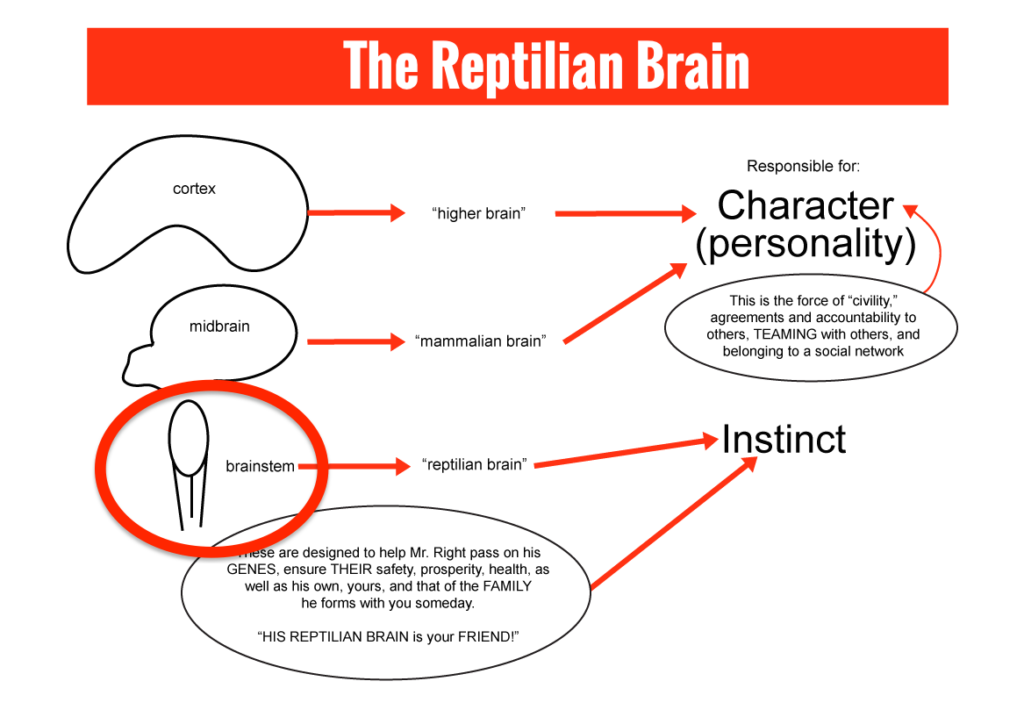
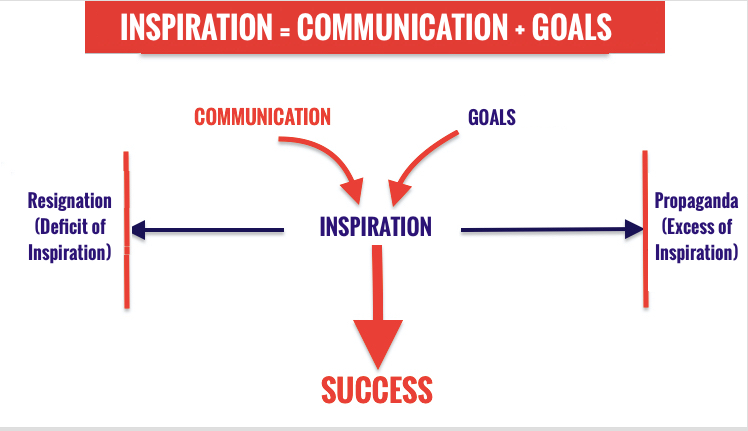 One may be ignorant of how much potential their partner has for reaching their life's
One may be ignorant of how much potential their partner has for reaching their life's 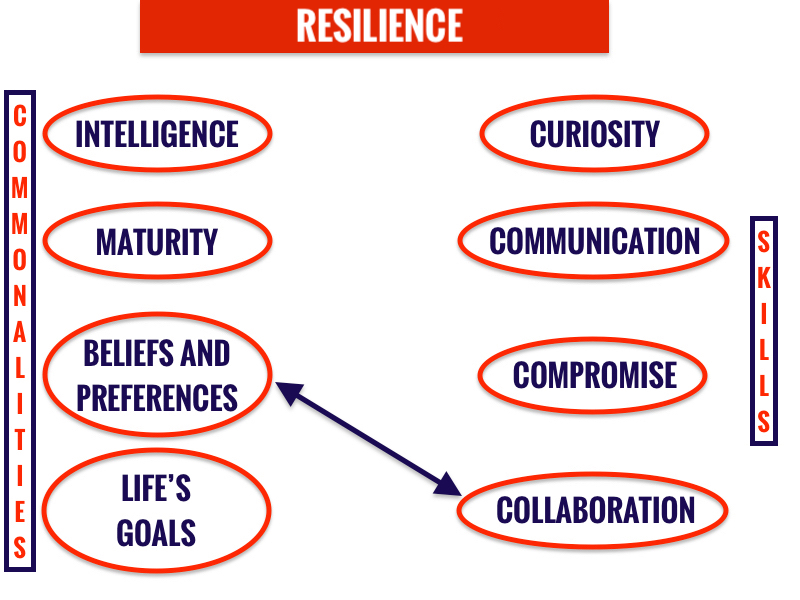 Resilience is defined in the dictionary as "the capacity to recover quickly from difficulties; toughness," or "the ability of a substance or object to spring back into shape; elasticity." The latter definition comes from physics and the physical world and the former is the description of a person. This makes sense, since actually achieving a goal in the end takes a lot of actions and physical activity. And so an "elastic" person contains the humanity to dynamically readjust their approach to things, and bend a little with life and the "curve balls" it throws us. As a capacity to "recover from difficulties," the "toughness" of the resilient person may not be that physical, like your physically frail grandmother's, but it certainly is a mental toughness of character, "the bootstrap gene."
Resilience is defined in the dictionary as "the capacity to recover quickly from difficulties; toughness," or "the ability of a substance or object to spring back into shape; elasticity." The latter definition comes from physics and the physical world and the former is the description of a person. This makes sense, since actually achieving a goal in the end takes a lot of actions and physical activity. And so an "elastic" person contains the humanity to dynamically readjust their approach to things, and bend a little with life and the "curve balls" it throws us. As a capacity to "recover from difficulties," the "toughness" of the resilient person may not be that physical, like your physically frail grandmother's, but it certainly is a mental toughness of character, "the bootstrap gene."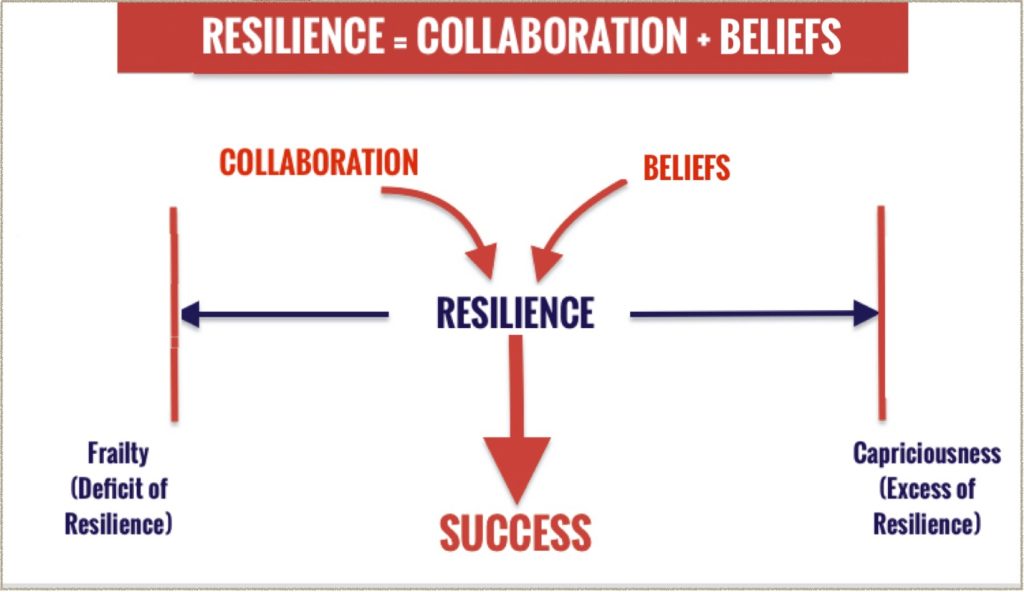 From Aristotle's Golden Mean, we learn that every
From Aristotle's Golden Mean, we learn that every 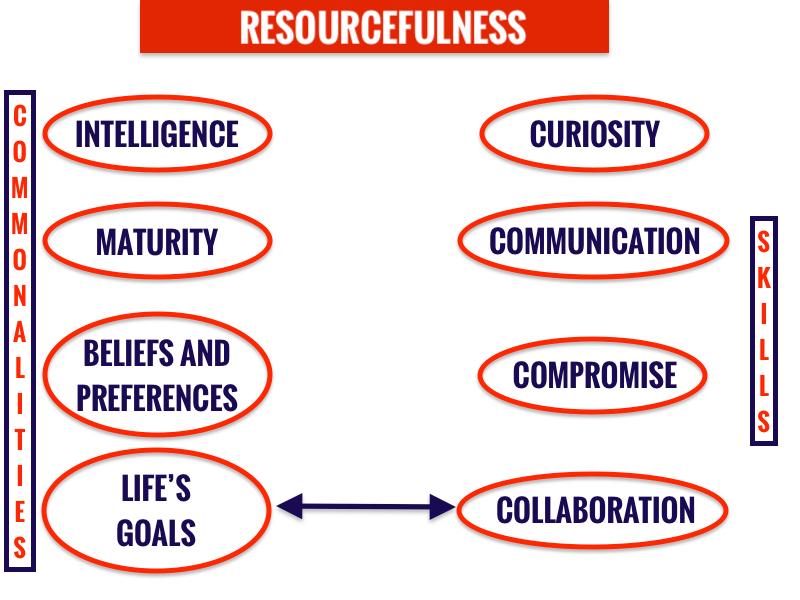 Resourcefulness is defined in the dictionary as "the ability to find quick and clever ways to overcome difficulties," which is a wonderful way to describe it in terms of the needs a couple has for such a person. Clever, and problem solving to overcome difficulties (toward a goal.) It is a character trait and
Resourcefulness is defined in the dictionary as "the ability to find quick and clever ways to overcome difficulties," which is a wonderful way to describe it in terms of the needs a couple has for such a person. Clever, and problem solving to overcome difficulties (toward a goal.) It is a character trait and 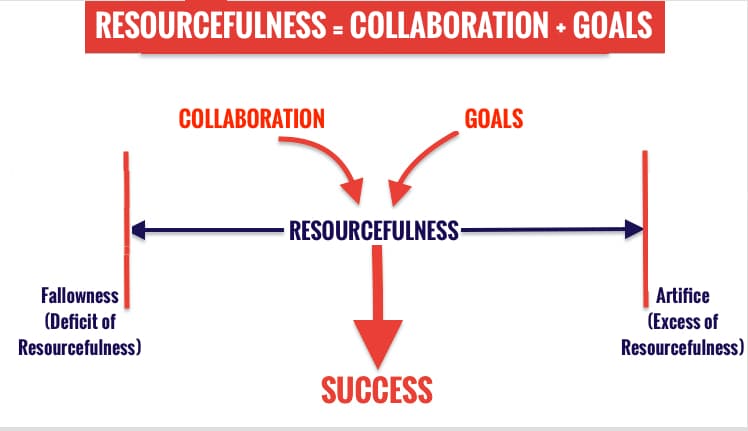 From Aristotle's Golden Mean, we learn that every
From Aristotle's Golden Mean, we learn that every 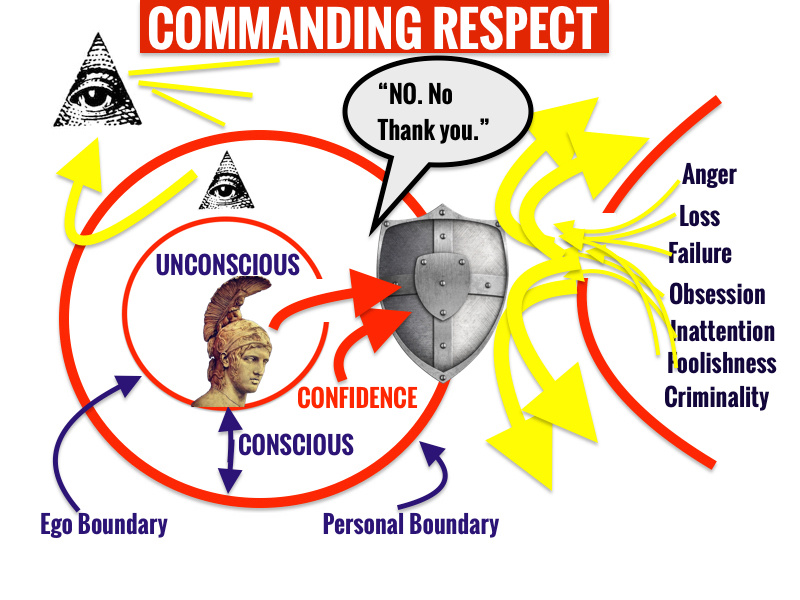

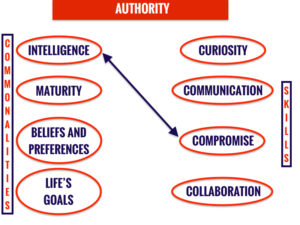 ompromise as a skill of
ompromise as a skill of